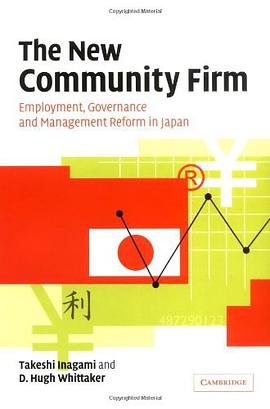

具體描述
After sweeping all before it in the 1980s, 'Japanese management' ran into trouble in the 1990s, especially in the high-tech industries, prompting many to declare it had outlived its usefulness. From the late 1990s leading companies embarked on wide-ranging reforms designed to restore their entrepreneurial vigour. For some, this spelled the end of Japanese management; for others, little had changed. From the perspective of the community firm, Inagami and Whittaker examine changes to employment practices, corporate governance and management priorities, in this 2005 book, drawing on a rich combination of survey data and an in-depth study of Hitachi, Japan's leading general electric company and enterprise group. They find change and continuity, the emergence of a 'reformed model', but not the demise of the community firm. The model addresses both economic vitality and social fairness, within limits. This book offers unique insights into changes in Japanese management, corporations and society.
著者簡介
圖書目錄
讀後感
評分
評分
評分
評分
用戶評價
相關圖書
本站所有內容均為互聯網搜索引擎提供的公開搜索信息,本站不存儲任何數據與內容,任何內容與數據均與本站無關,如有需要請聯繫相關搜索引擎包括但不限於百度,google,bing,sogou 等
© 2025 book.quotespace.org All Rights Reserved. 小美書屋 版权所有



















